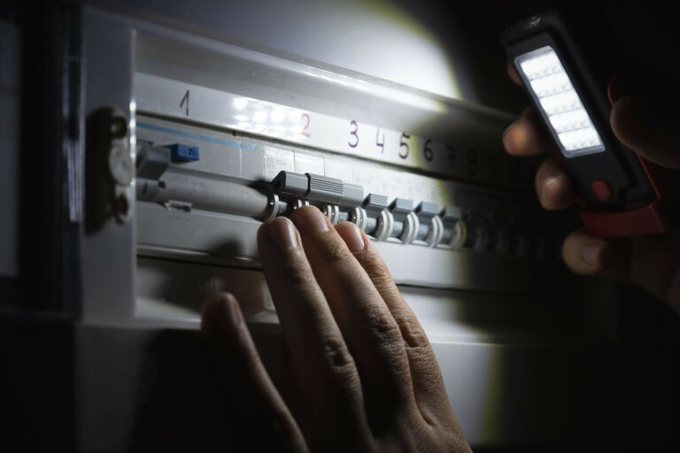May 23, 2025 | 13:42 GMT +7
May 23, 2025 | 13:42 GMT +7
Hotline: 0913.378.918
May 23, 2025 | 13:42 GMT +7
Hotline: 0913.378.918

Electricity supply is crucial at all stages of the supply chain, including slaughter, processing, and storage. Photo: Canva
Ukraine is suffering from some of the worst power outages since the start of the war, Time Magazine recently reported, citing local officials. Russia has knocked off around 60% of the Ukrainian power-generating capacities, which entailed rolling blackouts across the country. DTEK, Ukraine’s largest private power company, which has lost 90% of its generation capacity, has warned of a potential worsening in winter, with outages lasting up to 20 hours per day.
The repeated blackouts put the very existence of the Ukrainian poultry industry into question, Serhiy Karpenko, executive director of the Ukrainian Poultry Farmers Association, told a local news outlet Khvilya.
On average, poultry farms are left without a centralised electricity supply for 7-10 hours per day. For some operations, the supply is limited to only 4-10 hours per day, he admitted.
Diesel generators, a “band-aid” solution
Although many businesses have established backup power generation capacities, the blackouts wreak havoc on the production cycle.
“Incubation and the following rearing of young laying hens requires strict adherence to technological standards for keeping poultry for 4 months, which cannot be achieved without ensuring a stable and uninterrupted electricity supply,” Karpenko said.
Using backup capacities, such as diesel generators, tremendously spurs production costs. Besides, when such solutions are applied, an equipment failure would mean a loss of the entire flock, as farmers usually have no alternative to backup power generation. At least 1 farm in Ukraine has already lost all poultry due to a power outage.
All links of the supply chain impacted
Besides, electricity supply is crucial at all stages of the supply chain, including slaughter, processing, and storage. Karpenko revealed that the feed industry has yet to fully adapt to intermittent blackouts.
“Powerful feed milling equipment requires a certain voltage to kick start, maintain operation, and ensure all related processes of manufacturing feed per existing standards, which diesel generators are simply incapable of providing. The inability to produce feed is fraught with the inevitable loss of poultry,” Karpenko warned.
Blackouts also put pressure on trade, as problems with refrigerator equipment’s functioning mean a higher rate of food spoilage. Karpenko indicated that this factor put additional pressure on consumption.
(Poultryworld)

(VAN) Alt Carbon has raised $12 million in a seed round as it plans to scale its carbon dioxide removal work in the South Asian nation.

(VAN) Attempts to bring down the price of the Japanese staple have had little effect amid a cost-of-living crisis.

(VAN) Fourth most important food crop in peril as Latin America and Caribbean suffer from slow-onset climate disaster.

(VAN) Shifting market dynamics and the noise around new legislation has propelled Trouw Nutrition’s research around early life nutrition in poultry. Today, it continues to be a key area of research.

(VAN) India is concerned about its food security and the livelihoods of its farmers if more US food imports are allowed.

(VAN) FAO's Director-General emphasises the need to work together to transform agrifood systems.

(VAN) Europe is facing its worst outbreak of foot-and-mouth since the start of the century.